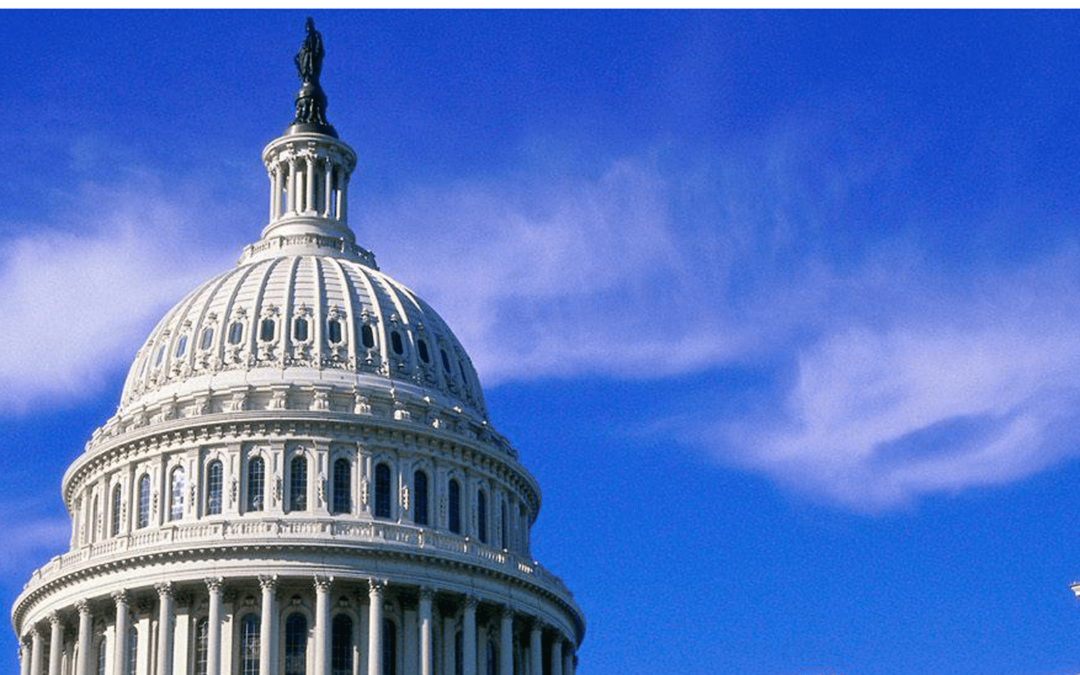The U.S. Senate passed a bill Thursday night that would provide $105 billion in funding for the Federal Aviation Administration for five years and another $738 million to the National Transportation Safety Board for airport modernization, technology programs and safety.
There were minor amendments to a bill previously agreed on by Congressional transportation leaders, so the House will have to debate and pass the bill before it can go to President Joe Biden.
The House is out of session until next week. So, after passing the longer bill by a vote of 88-4, the Senate also passed a one-week extension to ensure the existing law does not expire before the House can take up the new version of the bill. The House had passed the same extension earlier in the week.
Had they not agreed to the extension, the FAA would have had to furlough 3,600 workers when the existing law expired at midnight Friday.
The largest sticking point in the FAA Reauthorization Act of 2024, which includes provisions designed to improve air safety and customer service for air travelers, has been the proposed addition of 10 flights per day to and from Ronald Reagan Washington National Airport (DCA). Virginia Senators Tim Kaine and Mark Warner, both Democrats, had pushed for an amendment blocking the allowance of more long-haul flights at DCA because it is size restricted and already too busy.
They called the near collision of two planes last month a “flashing red warning light.”
But lawmakers from further West have argued for more long-haul flights from DCA. Right now, longer flights are available via Washington Dulles International Airport (IAD) and from Baltimore/Washington International Thurgood Marshall Airport (BWI).
“The Senate abdicated its responsibility to protect the safety of the 25 million who fly through DCA every year,” the Virginia senators said in a statement Thursday night. “Just weeks after two aircrafts nearly crashed into one another at DCA, this body refused to take up our commonsense amendment to remove a dangerous provision that would have crammed more flights onto the busiest runway in America. … They didn’t want to show the American people that they care more about a few lawmakers’ desire for direct flights than they care about the safety and convenience of the traveling public.”
Beyond the slots at DCA, there has been broad bipartisan agreement on most of the bill. In a joint statement last month announcing the passage that moved the bill to the full Senate, Senate Commerce, Science and Transportation Committee Chair Maria Cantwell (D-Wash.) and Ranking Member Ted Cruz (R-Texas), and House Transportation and Infrastructure Committee Chair Sam Graves (R-Mo.) and Ranking Member Rick Larsen (D-Wash.) jointly announced a final bipartisan, bicameral bill to reauthorize the FAA.
“Now more than ever, the FAA needs strong and decisive direction from Congress to ensure America’s aviation system maintains its gold standard, and we have reached a bipartisan, bicameral, comprehensive agreement to do just that,” the legislators said in the joint statement.
“The American people deserve nothing less than the safest and most efficient aerospace system in the world, and to that end, our bill provides critical safety enhancements, grows America’s aviation workforce, invests in infrastructure at airports of all sizes, sets clear priorities for advancing innovative aviation solutions, improves the flying public’s travel experience, and ensures a healthy general aviation sector for years to come.”
The bill would make several changes to the Airport Improvement Program (AIP), setting the highest AIP authorization level ever at $4 billion annually.
Additionally, it replaces the current $100 million annual authorization for AIP supplemental funding with a new $200 million per year authorized program to fund airport resilience and runway safety projects.
The bill changes AIP funding formulas by increasing apportionment allocations for smaller airports and cargo airports, reducing the AIP/PFC turnback for large and medium hubs from 75 percent to 60 percent, and allowing airports to use 2018 or 2019 enplanement figures for AIP allocations in 2024. It also authorizes the FAA to approve AIP grants for projects that use innovative financing techniques and expands an existing alternative project delivery program to allow for the FAA to approve AIP funds for use in such projects.
While the new bill doesn’t address an increase to the cap on Passenger Facilities Charges – a key, long-term lobbying effort by the airport industry – it does allow for a streamlined authorization process into the PFC program, permitting more airports to participate and allowing participating airports to forego an application submittal to the FAA.
Beyond funding issues, the compromise measure does not include a Senate provision that would have required TSA and/or airports to provide special security escorts for federal officials, their family, and their staff, according to ACI-NA.
The measure also revises current airport land-use policy by not requiring airports to seek FAA approval for projects on non-federal, non-aeronautical land and limiting FAA reviews of mixed-use projects only to those parcels with a federal and aeronautical interest.
Finally, the latest version would also authorize $350 million to help airports transition to fluorine-free firefighting foams, and establishes a new Runway Safety Council at FAA.






